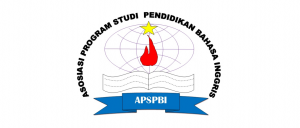The SVR (Self-Video Recording) Technique to Enhance Self-Confidence in English Speaking Proficiency
DOI:
https://doi.org/10.31002/metathesis.v7i2.1124Keywords:
SVR (Self-Video Recording), Speaking, Self-ConfidenceAbstract
This explanatory sequential mixed-method study tackles the English language proficiency challenge faced by non-English major students, emphasizing the critical role of the college phase in shaping the pre-professional skills of Indonesian youth. It aims to assess whether the Self-Video Recording (SVR) technique can boost the self-confidence of them when speaking English. The research directly assesses first-year students at Universitas Tidar. The primary focus is on evaluating SVR's positive impact on self-assurance in English communication. Based on the data compiled, there is a consistent trend in the responses from students who participated in both the questionnaire and the interview. Out of the 65 students, it was reported that their confidence levels increased after undergoing the interventions carried out by the research team. This indicates that the majority of students who reacted positively to the role-play exercises and the implementation of the SVR technique to enhance their confidence in speaking English are likely the same group of students. Hence, it is plausible to consider that the research participants who observed only a slight improvement cannot be solely attributed to external factors but may also be influenced by internal factors, such as a lack of interest in speaking English and other related considerations.
Downloads
Additional Files
Published
How to Cite
Issue
Section
License
Copyright (c) 2023 Metathesis: Journal of English Language, Literature, and Teaching

This work is licensed under a Creative Commons Attribution-ShareAlike 4.0 International License.
The copyright of the received article shall be assigned to the journal as the publisher of the journal. The intended copyright includes the right to publish the article in various forms (including reprints). The journal maintains the publishing rights to the published articles. Therefore, the author must submit a statement of the Copyright Transfer Agreement.

This work is licensed under a Creative Commons Attribution-ShareAlike 4.0 International License.
In line with the license, authors are allowed to share and adapt the material. In addition, the material must be given appropriate credit, provided with a link to the license, and indicated if changes were made. If authors remix, transform or build upon the material, authors must distribute their contributions under the same license as the original.



